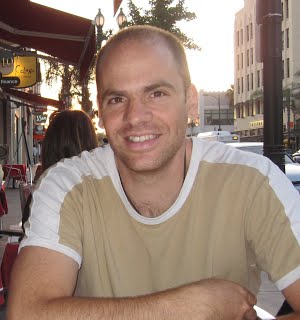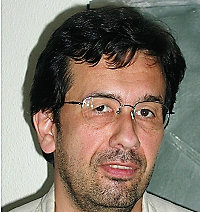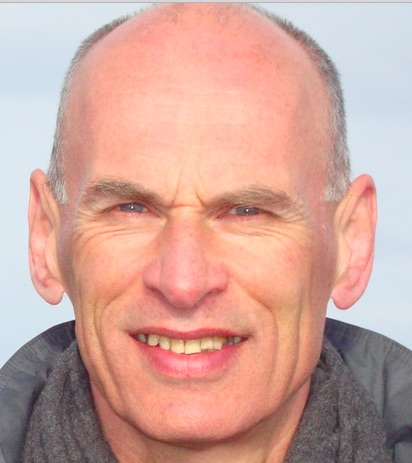The final programme will also be available on papercept: http://ifac.papercept.net
Note that we have 3 plenary speakers while 2 PhD defenses will take place on July 2 in the afternoon (you are all most welcome to attend them)
Details are given below.
| |

Massimiliano Esposito, University of Luxembourg, Physics and Materials Science Research Unit
"Nonequilibrium Thermodynamics: From Quantum Dots to Metabolic Networks"
Speaker Biography
Professor Massimiliano Esposito is a theoretical physicist specializing in statistical physics and the study of complex systems. His current research focuses on energy and information processing in small quantum systems and biological systems, in particular chemical reaction networks. He obtained his PhD in 2004 at Université Libre de Bruxelles (ULB) in Belgium. After two postdocs in California at UC Irvine and UC San Diego, he came back as a contract researcher for two years at ULB. In 2012 he was awarded a five year Attract Fellowship by the National Research Fund of Luxembourg to start his own research group "Complex Systems and Statistical Mechanics" in the Physics and Materials Science Research Unit at the University of Luxembourg. In 2016 he became Professor of Theoretical Physics and was awarded a five years Consolidator Grant (NanoThermo) by the European Research Council.
|
| |

Christian Jallut, LAGEP, Lyon
"Thermodynamical Engineering"
Speaker Biography
Prof. Christian JALLUT was graduated in 1981 from the “INSA de Lyon” polytechnic institute in Energy and Chemical Engineering. He also got a Master degree in Automatic Control. He worked for his PhD thesis on modeling and control of a distillation column coupled with a heat pump.
Between 1984 and 1987, he was involved at “INSA de Lyon” in a project concerning the use of solar energy in industrial buildings. The main subject was control and transient state thermal modeling of the system. Between 1987 and 1991, his activity was oriented toward chemical engineering and process control at Lyon University. He was particularly involved in batch process modeling and control and reaction calorimetry.
Between, 1991 and 1994, he got a position of full Professor in Chemical Engineering at the “Institut National Polytechnique de Grenoble” polytechnic institute, in the Electrochemistry and material science department (“Ecole Nationale Supérieure d’Electrochimie et
d’Electrométallurgie de Grenoble”). He made researches on the use of transient state techniques for measuring heat and mass transport parameters as well as liquid phase particulate fouling in heat exchangers in collaboration with the French Atomic Energy Agency (CEA, “Commissariat à l’Energie Atomique”).
He is now full Professor of Chemical Engineering at Lyon University since 1994. He is involved in transient state modeling and control in Chemical Engineering by using Thermodynamic concepts in the “Laboratoire d’Automatique, de Génie des Procédés et de Génie Pharmaceutique” (Process Control, Chemical Engineering and Pharmaceutical Engineering Laboratory) of this university.
As a teacher, Prof. Christian JALLUT gives lectures in Thermodynamics, Dynamic modeling of processes and Transport Phenomena.
|
| |

Arjan van der Schaft, University of Groningen, Johann Bernoulli Institute for Mathematics and Computer Science, Jan C. Willems Center for Systems and Control
"The geometric formulation of non-equilibrium macroscopic thermodynamics: from network modeling to control"
Speaker Biography
Arjan van der Schaft received the undergraduate and PhD degrees in mathematics from the University of Groningen, the Netherlands. In 1982 he joined the Department of Applied Mathematics, University of Twente, where he was appointed as full professor in Mathematical Systems and Control Theory in 2000. In September 2005 he returned to his Alma Mater as professor in Mathematics.
Arjan van der Schaft is Fellow of the Institute of Electrical and Electronics Engineers (IEEE), Fellow of the International Federation of Automatic Control (IFAC), and was the 2013 recipient of the 3-yearly awarded Certificate of Excellent Achievements of the IFAC Technical Committee on Nonlinear Systems. He was Invited Speaker at the International Congress of Mathematicians, Madrid, 2006.
Books authored by him include Variational and Hamiltonian Control Systems (1987, with P.E. Crouch), Nonlinear Dynamical Control Systems (1990, 2016, with H. Nijmeijer), L2-Gain and Passivity Techniques in Nonlinear Control (1996, 2000, 2017), An Introduction to Hybrid Dynamical Systems (2000, with J.M. Schumacher), and Port-Hamiltonian Systems: An Introductory Overview (2014, with D. Jeltsema).
|
PhD defences of Aaron Romo and of Benjamin Vincent
Both theses have a strong link with the theme of the workshop. Everyone is most welcome to attend the PhD Defences (in the specific format of PhD defences in our university...)
Benjamin Vincent
Time: 15h, Location: auditorium A01, Place des Sciences
Title: Modelling and analysis of multi-physics systems
Abstract:Multi-physics systems are infinite dimensional systems described by conservation laws interconnected through nonlinear transport coefficients and nonlinear couplings. The thesis aims to develop structured-based techniques for modelling and analysis of multi-physics systems. The port-Hamiltonian and GENERIC formalisms are considered and compared throughout the thesis. Key contributions include structured modelling from first principle equations, structure-preserving geometric reduction and discretization, and passivity and stability analysis for multi-physics systems based on total irreversible entropy production. The thesis is motivated by two applications: The control of burning plasma profiles in Tokamaks; and, the rejection of thermoacoustic instabilities in Rijke tubes. For the first application, we consider the transport problem associated to the interconnection of electro-magnetic, heat, and mass transport equations. The second application illustrates an instable thermoacoustic phenomenon arising experimentally under specific geometry and heating conditions within a vertical tube. Such practical systems are pre-disposed to be formulated as structured ones through port-Hamiltonian and GENERIC formalisms.
Aaron Romo
Time: 17h, Location: auditorium A02, Place des Sciences
Title: An irreversible approach to modeling and analysis of multiphase systems
Abstract:From liquid-gas reactors in bioprocess engineering to membrane distillation in complex liquid-vapor separations, we can find several examples of multiphase systems (MPS) in process engineering. Frequently, MPS are assumed to operate at thermodynamic equilibrium; in our work, we suggest the possibility of MPS to operate under no such assumption. Using non-equilibrium thermodynamics, we set a methodology for modeling and analysis of irreversible multiphase processes (iMPPs). Energy, mass and momentum balances set the state of iMPPs as the solution to a differential algebraic system of equations (DAEs). The second law of thermodynamics is then proposed as a framework to investigate the dynamic properties of iMPP models. Being positive definite, the internal entropy production for iMPPs is proposed as a physics-based Lyapunov function candidate for further analysis. Modeling and simulation of a liquid-vapor multicomponent system is set as a case study to illustrate the proposed methodology.
Finally note that the final programme will also be available on papercept: http://ifac.papercept.net

